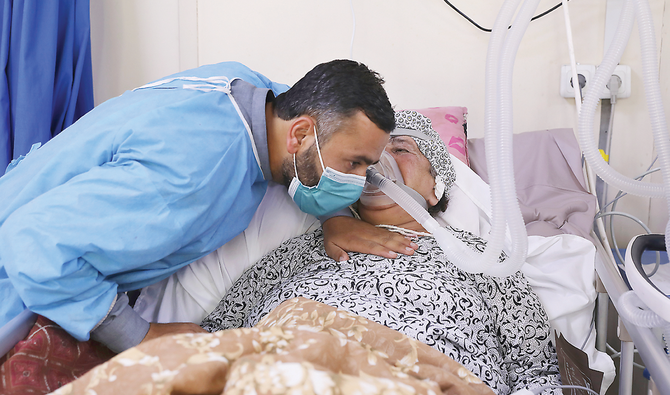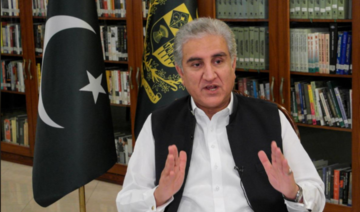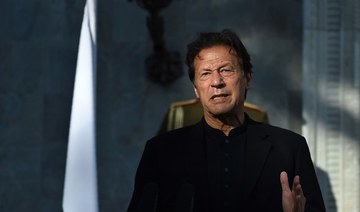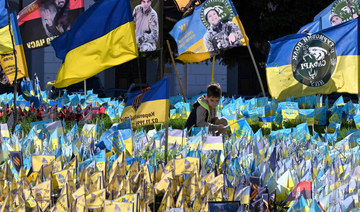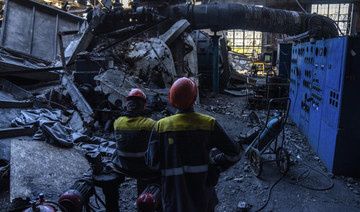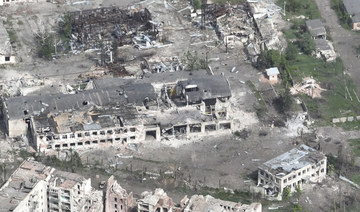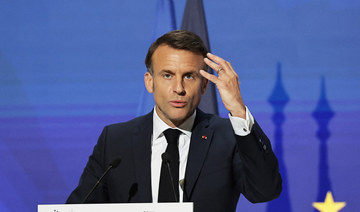KABUL: Afghanistan imposed new anti-COVID-19 restrictions on Sunday amid a surge in new cases and depreciating reserves of donated vaccines.
But the country is preparing to replenish vaccine stocks in the “near future,” an official said.
“Wearing masks has become compulsory in public areas. We have almost finished our vaccines (donated by India) and hope to receive 700,000 more from China in the near future,” Dastagir Nazari, a Health Ministry spokesman, told Arab News.
Additional measures involve bans on large public gatherings, including religious ceremonies, and the closure of wedding halls, in addition to a two-week leave for government staff aged older than 55 or those who have cancer, heart disease and diabetes, as well as pregnant workers.
Nazari said that 3 million COVID-19 vaccine doses, which the World Health Organization pledged to deliver by May, will now arrive in August.
“There was a commitment by the international community to aid Afghanistan technically and financially, but since the pandemic has become a global threat, countries have their own priorities,” he added.
Last week, the Afghan government ordered the closure of all schools and universities in most areas of the country after cases of the Delta variant were detected, which was first identified in India.
As of Sunday, 80,615 Afghans have tested positive for the disease, with 3,200 deaths reported, according to official data.
However, some figures have suggested that the real infection and death rates are much higher than government data suggests.
On Saturday, the Health Ministry said that 50 people had died from coronavirus-related complications, the highest official single-day toll recorded in war-torn Afghanistan, which relies on international aid for its battle against the virus, adding to the woes of the government amid an escalation in violent attacks by the Taliban.
Nazari said Afghans were facing a “tough and hard time” due to the pandemic, but declined to call it a “crisis or disaster.”
Mirwais Aliza, another spokesman for the health ministry, said that a shortage of ventilators and oxygen in some parts of the country presented “other challenges,” urging locals to follow restrictions amid fears over an uncontrollable spike in cases.
“If the countrymen do not heed our health advice, then there is a high likelihood that we will face serious problems,” Aliza told Arab News.
Many Afghans ignored the restrictions imposed by the government last year, as they felt the measures represented a threat to their livelihoods and businesses.
A report by the US Special Inspector General for Afghanistan Reconstruction said that according to World Bank estimates, Afghanistan’s overall poverty level rose from 55 percent to 72 percent in 2020 due to economic challenges amid a second wave of COVID-19.
The latest uptick in positive cases coincides with an escalation of violence in more than half of Afghanistan since May 1, when US-led foreign troops began exiting the country.
On Sunday alone, more than 60 Afghan security personnel were killed in a series of Taliban attacks in parts of the country, sources told Arab News.
The deadliest attack targeted a police base in northern Balkh, where militants reportedly staged a commando-style strike in a clash with security forces that lasted for two hours.



